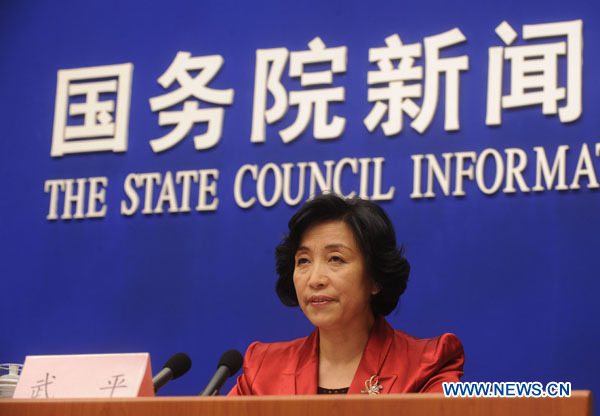Spacecraft Shenzhou-8 Hosts 17 China-Germany Experiments
Xinhua News Agency, November 3, 2011 Adjust font size:
China's unmanned spacecraft Shenzhou-8 is loaded with an experiment device with which Chinese and German scientists will carry out joint life-science experiments, said a spokeswoman for China's manned space program.
Spokeswoman Wu Ping made the remarks at a press conference held here after the Shenzhou-8 and the space lab module Tiangong-1 successfully docked with each other early Thursday.
She said 17 life-science experiment projects will be conducted via the loaded device, including 10 Chinese projects, six German projects, and one jointly-developed project.
China and Germany signed an agreement in May 2008 to make concerted efforts to conduct life-science experiments during the Shenzhou-8 space mission, said Wu.
Wu said it was the first time that China's manned space project carried out international cooperation in the field of space science application, adding that the cooperation between the two sides was "very good."
China will continue with international exchanges on the basis of mutual respect, win-win cooperation, transparency and opening-up in constructing space labs and space stations, Wu said.
Furthermore, the space lab module Tiangong-1 also carries with it several scientific experiments, including those on remote sensing, space material science and space environment, she said.
 |
| Wu Ping, spokeswoman for China's manned space program, speaks during a press conference about the first docking of China's unmanned spacecraft Shenzhou-8 and its space lab module Tiangong-1, in Beijing, capital of China, Nov. 3, 2011. [Xinhua] |


